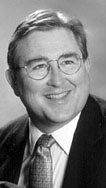Last week The Vagabond talked about William Alfred Williams, who supposedly escorted Emma Sansom back to her house after showing General Forrest where the ford was at Black Creek in Gadsden. It has been debatable about whether this happened or not, and even has been questioned if Williams was part of Forrest’s unit. As far as The Vagabond can tell from old written records from the 1880’s and from Will I. Martin articles, Williams was there and it did happen.
This week, The Vagabond portrays another escort that has a local connection – Robert Cannon Garrett.
Years ago, R.N. Taylor of Goodyear Avenue in East Gadsden made the claim that his grandfather, R.C. Garrett of Unionville, Tenn., was chosen at the age of 18 to be one of the six escorts to Gen. Nathan Bedford Forrest. This was at the very beginning of the War Between the States.
“I heard the story of Emma Sansom and General Forrest when I was just a little shaver at my grandfather’s knee,” said Taylor.
It turns out that his grandfather indeed was an escort.
Robert Cannon Garrett was born Feb. 11, 1844, in Bedford County. He was the son of Darington and Nancy (Gentry) Garrett, both natives of Tennessee. Both parents died when Robert was quite small.
Garrett enlisted in the Confederate Army in the fall of 1862 and entered as Gen. Forrest’s escort. He sustained this relation to the army throughout the entire war.
Garrett was wounded in the right arm just above the elbow during the battle of Chickamauga, an injury that disabled him from active duty for about six months. He was again wounded at Plantersville, Ala., when was hit by a spent ball on the left jaw, but this disabled him for only a short time.
At the close of the war, Garrett came home and began tilling the soil on the farm. He also became a member of the Tennessee Legislature.
On Nov. 30, 1865, Garrett led to the altar, Martha L. Jackson. She was the daughter of John and Rebecca (Lytle) Jackson, natives, respectively, of North Carolina and Virginia, and of Irish and English lineage.
To Mr. and Mrs. Garrett were born 10 children: Ella N., William T., John J., Robert C., Rebecca G., Lizzie L., Fannie C., Darlington J., Fane S. and the tenth, a daughter, died unnamed.
Mr. Garrett received ra-ther a limited education but enough for all practical purposes. He was a Democrat in politics, and Mrs. Garrett was a member of the Baptist Church.
Recalling his grandfather, R.C. Garrett of Unionville, Tenn., Taylor was very proud of the fact that his ancestor was chosen.
Garrett had known the general when he was a lad and the Confederate leader was a landowner at Chapel Hill in Bedford County, Tenn. Unionville was in the same county and only about three miles from Chapel Hill.
Deeds of heroism were told and retold by “Grandfather” Garrett, and one of the best stories loved by the children and grandchildren was that of the young Alabama girl Emma Sansom showing the general across Black Creek.
Garrett saw Emma Sansom mount the horse that the general was riding and was one of her escorts as she pointed out a crossing where the soldiers could wade their horses across the turbulent stream.
The bridge had been burned by the Union General A.D. Streight, who was on his way to Rome, Ga., to burn the Confederate arsenal. Her act of heroism enabled General Forrest and his band of cavalry to get to Rome and save the arsenal. This was on May 2, 1863.
Garrett died in 1937 at the age of 94. He had reared eight children to adulthood and had many grandchildren when he died. Taylor’s mother was his oldest child.
The Vagabond found another article of Civil War interests:
The late Col. R.B. Kyle used to tell a good story about a visit he paid Col. Streight in his offices in Indianapolis, Ind., some years after the Civil War.
Kyle said he was walking along one of the main business streets of that city when he happened to see a sign reading “A.D. Streight, Lumber.” Being in the lumber business himself and recalling that he met the Union officer shortly after his capture, Kyle decided to call.
Kyle said that he walked into an office and immediately recognized the noted raider. When he said hello, Streight remarked, “You have the advantage of me.”
“Well, yes,” replied the Alabamian. “The last time I saw you I had the advantage of you.”
By that time Streight had recognized his visitor and said, “Oh, you are Kyle.”
Col. Kyle went to Rome the day after the surrender and found Streight and all his officers closely guarded. After they found they had surrendered to only a handful of men, the Union officers began boldly to threaten to march out of captivity by main force, and it was necessary to tie some of them up.
Streight himself was tied to a chair in the Choice Ho-tel, and he was still tied up when Col. Kyle was introduced to him. They struck up an acquaintance, and Col. Kyle was able to somewhat alleviate the Union man’s personal discomfort.
After they met in Indianapolis, they had a long talk and parted in friendly fashion, but Col. Streight was still smarting over the military trickery of General Forrest in bringing about his downfall. Forrest sent drummers and non-commissioned officers out into the woods, instructing the drummers to make as much noise as possible and the officers to shout commands.
The trick worked, for Streight’s staff believed their army had been completely surrounded by an overwhelming force.





